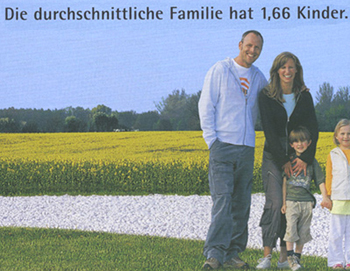|
 |
|
Every beginning is difficult |
|
The Present Tense in English:
English, in contrast to German, has a variety of tenses to indicate present time, and Germans who are learning English are often at a loss in deciding which to select: “I sing,” “I do sing,” “I am singing”, or “I have been singing.”
The Present Tense in German:
German makes it much easier by offering only one structure to cover all of these present-time meanings. The speaker must then employ adverbs to convey the differences (see below). Note: the following discusses only the present tense in the indicative mood and active voice. The subjunctive mood and the passive voice are treated elsewhere, as are the modal auxiliaries, reflexive verbs, and constructions with the verb
lassen.
Here are the regular present-tense endings that are added to the verb stem:
*
| ich singe |
wir singen |
| du singst |
ihr singt |
|
Sie singen |
| er/sie/es singt |
sie singen |
Again: German does not use grammatical forms to denote aspect, but relies on adverbs to make the distinctions that we find in English:
| Ich singe jeden Morgen in der Dusche. |
I sing in the shower every morning. |
| Er singt jetzt. |
He is singing now. |
| Sie singt doch, aber nur wenn sie singen will. |
She does sing, but only when she wants to. |
| Wir singen seit einer Stunde. |
We have been singing for an hour. |
As in English, the present tense is also frequently used to denote the future, as long as the context is clear:
| Wir singen heute Abend um 8. |
We are singing this evening at 8. |
Variations on the regular forms:
To ease pronunciation, the
du form and the third person singular become
-est and
-et if the verb stem ends in
-d, -t, -m, or
-n. For example:
| finden |
to find |
du findest |
er/sie/es findet |
| warten |
to wait |
du wartest |
er/sie/es wartet |
| atmen |
to breathe |
du atmest |
er/sie/es atmet |
| segnen |
to bless |
du segnest |
er/sie/es segnet |
Verbs with stems ending in
-s, -ss, -ß, or
-z add only a
-t in the
du form. For example:
| hassen |
to hate |
du hasst |
| heißen |
to be named |
du heißt |
| sitzen |
to sit |
du sitzt |
|
|
 |
|
The average family has 1.66 children. |
|
Irregular forms:
A few common verbs, including
sein (“to be”), are irregular enough in the present tense to be learned separately:
| sein |
“to be” |
werden |
“to become” |
| ich bin |
wir sind |
ich werde |
wir werden |
| du bist |
ihr seid |
du wirst |
ihr werdet |
|
Sie sind |
|
Sie werden |
| er/sie/es ist |
sie sind |
er/sie/es wird |
sie werden |
| haben |
“to have” |
wissen |
“to know” |
| ich habe |
wir haben |
ich weiß |
wir wissen |
| du hast |
ihr habt |
du weißt |
ihr wisst |
|
Sie haben |
|
Sie wissen |
| er/sie/es hat |
sie haben |
er/sie/es weiß |
sie wissen |
|
|
 |
|
We’re here. |
|
The Modal Auxiliaries have irregular forms in the singular:
| Infinitive |
ich |
du |
er/sie/es |
wir |
ihr |
Sie |
sie |
| dürfen |
darf |
darfst |
darf |
dürfen |
dürft |
dürfen |
dürfen |
| können |
kann |
kannst |
kann |
können |
könnt |
können |
können |
| mögen |
mag |
magst |
mag |
mögen |
mögt |
mögen |
mögen |
| müssen |
muss |
musst |
muss |
müssen |
müsst |
müssen |
müssen |
| sollen |
soll |
sollst |
soll |
sollen |
sollt |
sollen |
sollen |
| wollen |
will |
willst |
will |
wollen |
wollt |
wollen |
wollen |
Not all strong verbs have irregular forms in the present tense, but a number of them do change their stems in the “du” and 3rd-person singular forms. Here are some of the more common ones (N.B. with a few exceptions, this list contains only stems without separable or inseparable prefixes e.g.
fangen but not
anfangen, laden but not
einladen, etc.). A more complete listing of the principal parts of strong verbs is also available.
| Infinitive |
“du” |
“er/sie/es” |
Meaning |
| essen |
isst |
isst |
to eat |
| geben |
gibst |
gibt |
to give |
| helfen |
hilfst |
hilft |
to help |
| nehmen |
nimmst |
nimmt |
to take |
| sprechen |
sprichst |
spricht |
to speak |
| treffen |
triffst |
trifft |
to meet |
| vergessen |
vergisst |
vergisst |
to forget |
| werfen |
wirfst |
wirft |
to throw |
|
| lesen |
liest |
liest |
to read |
| sehen |
siehst |
sieht |
to see |
|
| fahren |
fährst |
fährt |
to drive |
| fallen |
fällst |
fällt |
to fall |
| fangen |
fängst |
fängt |
to catch |
| halten |
hältst |
hält |
to hold |
| laden |
lädst |
lädt |
to load |
| lassen |
lässt |
lässt |
to let; leave |
| laufen |
läufst |
läuft |
to run |
| schlafen |
schläfst |
schläft |
to sleep |
| schlagen |
schlägst |
schlägt |
to hit |
| tragen |
trägst |
trägt |
to carry; wear |
| wachsen |
wächst |
wächst |
to grow |
| waschen |
wäscht |
wäscht |
to wash |
Note that those irregular verbs whose stems end in
-t do not add an ending in the third person singular:
| Infinitive |
“er/sie/es” |
Meaning |
| halten |
hält |
to hold |
| braten |
brät |
to roast, fry |
| raten |
rät |
to advise; to guess |
| gelten |
gilt |
to be valid |
| schelten |
schilt |
to scold |
As in the
simple past tense, the finite verb might have a separable prefix, which then goes to the end of the clause:
| Wir kaufen immer montags ein. |
We always shop on Monday. |
| Sie bringt ihren neuen Freund mit. |
She is bringing her new boyfriend along. |
| Er lädt uns dieses Mal nicht ein. |
He’s not inviting us this time. |
| Er ruft seine Mutter nie an. |
He never phones his mother. |
| All infinitives end in -en (e.g. springen [to jump]) or sometimes just -n (e.g. wandern [to hike]). The “stem form” of regular verbs is that which remains after the -en or -n is removed. |
]]>
